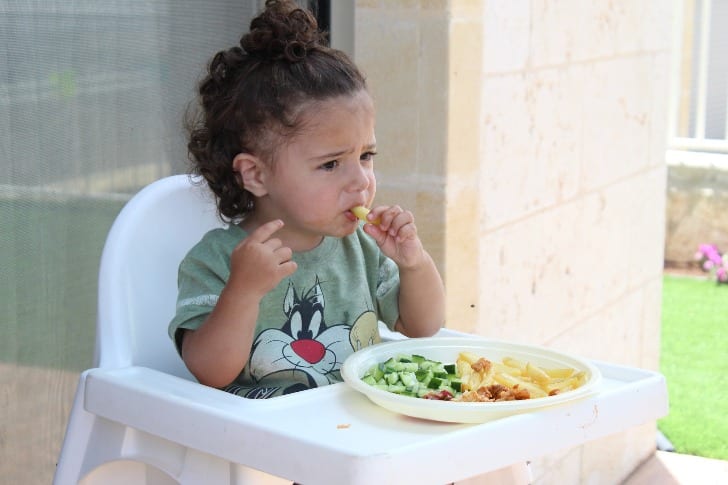A hike in the number of children who are allergic to certain foods is noted every year. This is especially seen in the West, where at least two kids in every classroom have to put up with a food allergy.
90% of these consumables include wheat, eggs, milk, fish, peanuts, tree nuts, shellfish, and soy – all of which are an important part of a healthy diet plan.
Why Were the Older Guidelines Changed?

StockSnap / Pixabay: Young girl eating cereal
Experts suggested that babies should not be exposed to milk until they reach the age of one, while eggs until the age of two. Other solids like peanuts, fish, and tree nuts were not to be fed until the infant turns three. Though no strong reasoning could be found for this belief.
Later, some studies that involved over 200,000 children showed that the ultimate way to prevent food allergies is to start feeding these foods to the babies as early as possible.
Kids who were between four to six months were given these items. Most of them turned out to be digesting them without any problem. Multiple research studies had also revealed a higher outlay of children with a wheat allergy when they were not given this food until after six months.
The New Guidelines

avitalchn / Pixabay: Kid in high chair eating snacks
It has now been stated that children who are between four to six months of age can be exposed to basic foods like rice and vegetables. Soon, parents can start introducing allergen eatables to their babies because the immune systemsare still developing.
Safety Precautions
The best place to do this is your home or at a pediatrician’s office. It is recommended that such things should not be tested at daycare or fancy places like a restaurant.
Watch out for symptoms like vomiting, itchy eyes or mouth, difficulty in breathing, swelling of tongue or throat, diarrhea, or abdominal cramps.Both peanuts or peanut butter can choke your infant; instead, water or purees can be added to the peanut butter before feeding it to the baby.
Still, be careful feeding your child with many allergen foods at once. You will not be able to find out which one of those caused a reaction if it occurs.
How Do I Confirm a Food Allergy?

Lynn Koenig Via/ Getty: Child refusing to eat
A diagnosis should always be made by an expert, usually a pediatrician. You shouldn’t take the matter into your own hands. Remember that if a child is sensitive to a certain food, it must be fully avoided, shouldn’t even be fed in small amounts.
